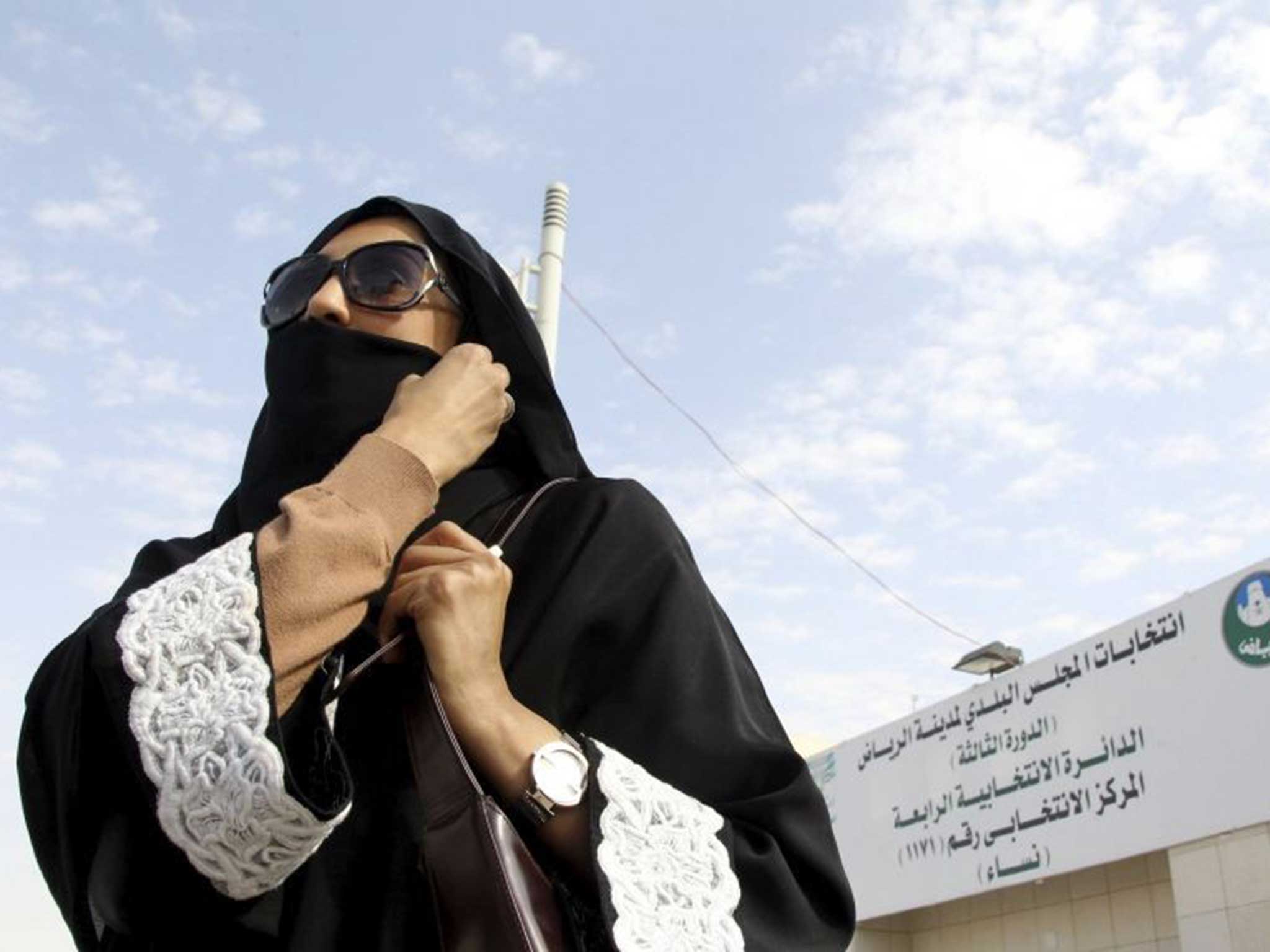Saudi Arabian women vote: Less than one in 10 women expected to cast a ballot in ultra-conservative country
Women cannot work, study, travel, marry or even access healthcare without the permission of a male guardian

Your support helps us to tell the story
From reproductive rights to climate change to Big Tech, The Independent is on the ground when the story is developing. Whether it's investigating the financials of Elon Musk's pro-Trump PAC or producing our latest documentary, 'The A Word', which shines a light on the American women fighting for reproductive rights, we know how important it is to parse out the facts from the messaging.
At such a critical moment in US history, we need reporters on the ground. Your donation allows us to keep sending journalists to speak to both sides of the story.
The Independent is trusted by Americans across the entire political spectrum. And unlike many other quality news outlets, we choose not to lock Americans out of our reporting and analysis with paywalls. We believe quality journalism should be available to everyone, paid for by those who can afford it.
Your support makes all the difference.Saudi Arabian women will vote for the first time, but in a country where they must seek male permission to work, study, travel, marry or even access healthcare, scepticism remains over the significance of the apparent reform.
A total of 978 women will stand alongside 5,938 men in the 2,100 seats available in local municipal councils on Saturday.
Of 20 million Saudi citizens, candidates must compete for the ballots of 1.35m registered male voters, against just 130,000 women, with the odds stacked against those few women standing.
In accordance with the Kingdom’s strict laws, female candidates have been unable to address male candidates and in public must speak from behind a screen. Voters are segregated, with those women who have registered driven to and from their polling station.
Five things women in Saudi Arabia can't do
1. Vote to the same extent as men
2. Walk outside uncovered
3. Meet men who are not family in public
4. Drive
5. Open a bank account
The Kingdom remains the only country in the world where women are unable to drive.
Many female activists have been disqualified from running without any explanation and out of 1,263 polling stations, just 424 have been reserved for women.
Despite the difficulties, female campaigners in the country remain optimistic. "This is a historical moment. I thank God I am living it," Saudi campaigner and academic Hatoon al-Fassi told the BBC.
"The fact that we have gone through this exercise is what really matters."
Women account for around 16 per cent of the workforce, but have little-to-no say in governance. Should any win seats, their role will be limited to planning, development and local services.
Of 142 countries ranked by the World Economic Forum's gender equality index Saudi Arabia came 130th: among those countries below the Kingdom were Oman, Lebanon, Syria, Yemen, Morocco and Iran.
Fighting back with technology
Saudi female candidates used Snapchat and social media as a cheap and accessible way to get their message out
Registration (both male and female) is a major issue, with candidate Haifa Alhababi, who teaches architecture in Riyadh, admitting her own mother and grandmother had not passed through a number of hoops in order to vote.
In order to vote, citizens must possess ID cards. While there are no technical bars to women gaining these, Human Rights Watch notes women must be driven to collect them by a male guardian and is sceptical about how many of the country's female population own them.
Movement within and outside the country for women remains a problem. The state enforces a 2012 law that requires a male relation to receive a text message should their ward leave the country.
The decision to allow women to vote was taken by the late King Abdullah – who also brought 30 women into the 150-person Shura council which effectively runs the day-to-day business of the country – and is seen a pivotal key of his legacy.
“This is a young country. It may seem developed because of the oil money. But it’s really just finding its way,” Ms Alhababi, 37, told The Independent.
“This election is another step – even if a baby step – for women. Don’t discount it.”
The results of the election are expected to be announced later on Saturday.
Join our commenting forum
Join thought-provoking conversations, follow other Independent readers and see their replies
Comments